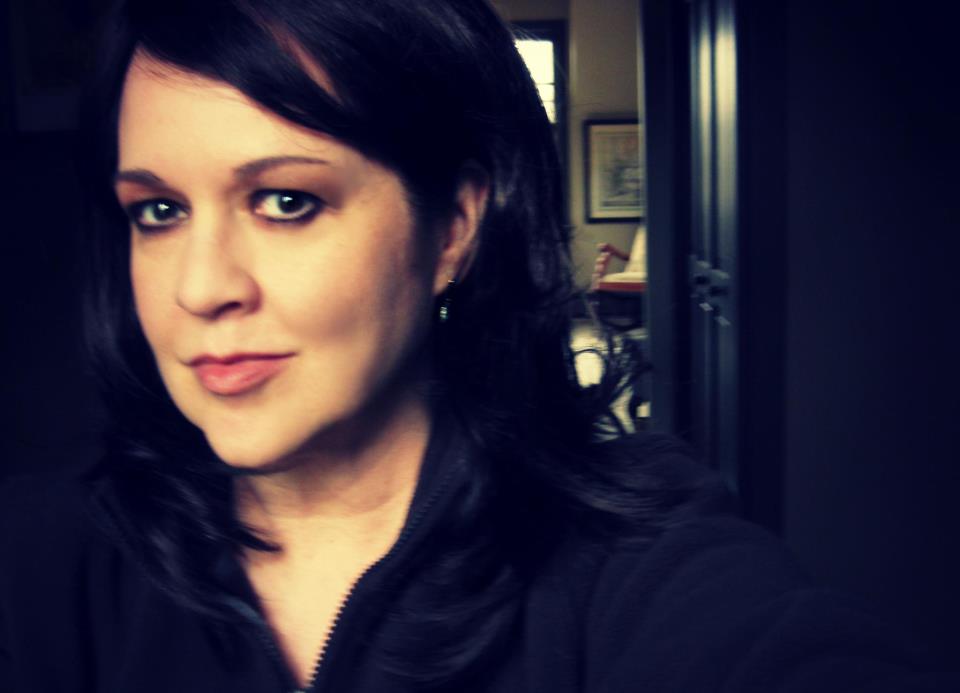
Can you remember the first poem you wrote?
Yes, absolutely. I started a weblog in 2008. Many of my posts paired others' poetry with art. After about a year, I thought to myself, "Hey, I think I can do this poetry thing." And so I did.
And how old you were when you wrote it?
Do I have to answer this question truthfully? Okay, I was 53 when I wrote my first poem in 2009. I'm a late bloomer.
And what it was about?
It is about my paternal great-grandmother, Emma, who was committed to Central State Hospital, Indianapolis, in 1914, shortly after the birth of her first child. It's tragic to think she might have been institutionalized for life for something as simple, and treatable, as postpartum depression.
Emma
for Emma Mae Rathfon, 1891-1932
Shadows of my family
hang from your smile,
like the chain on your lace
blouse. Galena Kansas, 1910
brands the photo, tags your face,
like cattle marked for market.
Committed, they said.
Pay no mind to the girl
behind the curtain.
Years of silence wrangled
in a dark corral, with only
the absent rattle of your shackles.
A cold reminder, your smile
lays folded, tucked in a hope chest,
with your locket and ruby slippers,
waiting for the scarecrow and tin man
to link arms and steer you along
that yellow brick road to the sky.
Name a favourite poem or two . . .
"Words, Wide Night" by Carol Ann Duffy, "In the Greenhouse" and "The Earrings" by Eugenio Montale, "Dirge Without Music" by Edna St. Vincent Millay, "After You Speak" by Edward Thomas, "The Hill" by Rupert Brooke . . . to name a few . . .
. . . and a few of your favourite poets.
Janet Frame, Philip Larkin, Eugenio Montale, Edna St. Vincent Millay, Anne Sexton, Charles Simic . . .
Do you talk about poetry with your friends or is it a secret part of your life?
Poetry is an integral part of my life, definitely not secret. Many of my friends are poets, and I discuss poetry online on a daily basis. On the other hand, I rarely talk about poetry with family, unless asked. It's unfair to inflict it on innocent bystanders.
Do you write poetry for yourself, or for others, or for both?
I write poetry for myself and others. It would be terribly selfish to write poetry only to keep it to oneself. Poetry is art; it's communication. It's meant to be read out loud, to be shared, digested.
Is it important to you if your poems get published or not?
I'm very fortunate to have two of my poetry collections published by Finishing Line Press. Not only do I feel a certain validation for my work, but it's also very satisfying to have my poetry available to the public.
Do you think poetry is important in the global scale of things or just a pleasant, indulgent hobby like needlework or trainspotting?
I'm not sure who first used "thought bomb" to describe poetry, but I like it. Poetry is a necessary and beautiful literary conduit for channeling thoughts and ideas, condensing them, and exploding them in the minds of readers. Poetry that accomplishes this should never be referred to as a hobby.
What does poetry really mean to you?
After my first collection of poems was published, I timidly started calling myself a poet. It felt curious at first, but eventually I realized poetry is a big part of who I am. Poetry is what I do. I live it.
Is poetry better than sex?
Not necessarily. It depends on the sex . . . it depends on the poetry . . .